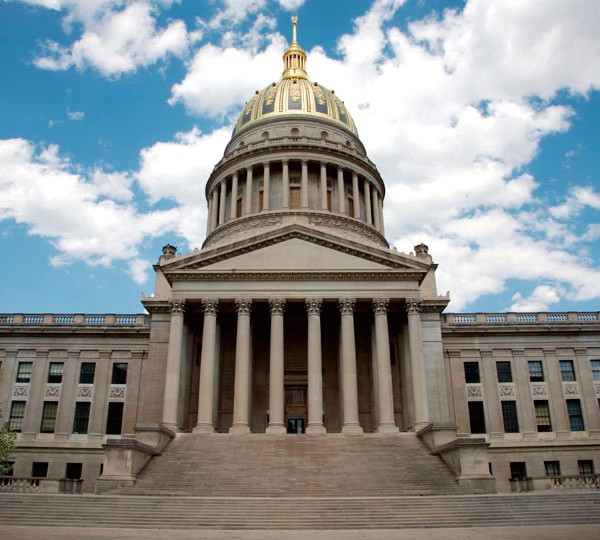MORGANTOWN – State Senate leaders offered a preview of their priorities for the coming session during a West Virginia Press Association virtual lookahead meeting Tuesday afternoon.
WVPA typically holds a one-day series of sessions in Charleston each year before the session but COVID constraints this year led to a change to four virtual meetings stretched across Tuesday through Thursday. The session begins Feb. 10.
Republicans saw their majority grow in the November election. GOP Caucus chair Rollan Roberts, R-Raleigh, said, “Positive things are happening in West Virginia. … We must wisely and cautiously with decisiveness take bold steps to change the course of the future.”
Reflecting Gov. Jim Justice’s desire to phase out the personal income tax, tax reform will be at the forefront of the GOP agenda, he said. They look to shift some of the tax burden from West Virginia workers to tourists, nonworkers, travelers and out-of-state businesses.
Roberts said they have 125 bills ready to introduce right away: 27 government reform bills, nine judicial reform; 21 education reform, 12 tax reform, 16 economic development, nine health and human resources, nine elections, three agriculture, 3 transportation and infrastructure, and 16 miscellaneous.
“We expect to hit the ground running because we really don’t want to waste any time in this legislative session because we really don’t exactly know what’s going to develop as time goes on.”
Another big priority, said President Craig Blair, will be broadband expansion. But budget expansion isn’t on the horizon. He expects it to be relatively flatline, and it was the prior two years.
The pandemic that began last March has raised questions about the balance of legislative and executive power in the state, said Judiciary vice chair Ryan Weld, R-Brooke. So the committee will be examining the extent of executive power during emergencies and how to grant more to the Legislature.
Questions of liability protection and frivolous lawsuits regarding coming down with COVID have arisen across the nation and in Congress. Weld said they’ll be looking at that this session.
And they’ll be looking at several Constitutional amendments. One issue is legislative impeachment authority after a fill-in state Supreme Court shut down the impeachment process of then-Chief Justice Margaret Workman in 2018.
Also in view, he said, are amendments making state Board of Education rule-making subject to legislative oversight as other agency rules are, and putting more ability to enact tax code changes in the hands of the Legislature.
Education chair Patricia Rucker said they’re planning to offer a survey to all teachers to hear directly from them what they need and what needs improvement. The committee will continue looking at bills to provide more flexibility and local control. Building on lessons learned during the pandemic, they may need to adjust laws governing online virtual education.
Charter schools have been divisive and the sole effort to launch one – in Monongalia County – failed. Justice said they’re planning to try to improve the 2019 legislation that authorizes them. And they’re looking at legislation – which will likely rile the teachers’ unions – to get more certified teachers into classrooms.
Government Organization chair Mark Maynard, R-Wayne, will bring to his committee bills to streamline the occupational licensing process for out-of-state trades workers who want to move here and for veterans trained during their military service.
The GOP majority stands and 23-11 and the minority members know they can’t do much to block a GOP agenda. But they’re hoping, they said, for bipartisanship as the session unfolds.
“We want to provide opportuity for everybody in West Virginia,” said Minority Leader Stephen Baldwin, D-Greenbrier.
That means protecting public health, he said, and addressing the drug crisis that has worsened during the pandemic. They agree that broadband must be a priority and that means leveraging federal dollars to build a state system without relying on providers that have proven unreliable.
Access to the Capitol this session will be limited for the general public and for the lobbyists who gather in the hallways and fill meeting rooms. Baldwin said, as others have, that there’s a worry lobbyists will more than ever be drawing out their wallets and courting legislators at after-hours dinners so the minority will introduce a bill banning lobbyists from taking legislators out for meals.
Sen Richard Lindsay, D-Kanawha, said the minority is also interested in measures to keep students in the state, to increase Medicaid reimbursements to help rural hospitals stay afloat and, in the context of tax reform, investing health care workers, law enforcement and first responders.
On the topic of tax reform, Blair said in answer to a question that they don’t yet have the details on the plan to end the personal income tax. But the session is still a week away. “When the time is right, you’ll know.”
There’s no way to do away with $2.1 billion in revenue in a single year, he said, so the plan would be phased in.
He’s optimistic, though, that becoming one of the no-income-tax states would draw 400,000 people to the state, including students who’ve left, and help keep students here, and seniors who take their fixed retirement incomes to other states with no income tax.
Tweet @dbeardtdp




